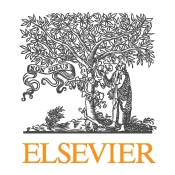
 Call for Papers
Call for Papers Preparation Instructions to Authors
This conference uses double-blind review, which means that both the reviewer and author identities are concealed from the reviewers, and vice versa, throughout the review process to make it fairer. To facilitate this, authors need to ensure that their manuscripts are prepared in a way that does not give away their identity. To assist with this, the key items that need to be observed are as follows:
Remove names and affiliations under the title within the manuscript. It can added during the submission of camera ready paper.
Remove names and affiliations under the title within the manuscript. It can added during the submission of camera ready paper.
Paper Formatting
Ensure that the figures and tables are legible. Please also ensure that you refer to your figures in the main text. The proceedings will be printed in gray-scale, and many reviewers print the papers in gray-scale. Therefore, if you must use colors for your figures, ensure that the different colors are highly distinguishable in gray-scale. If a figure is not easily understandable in gray-scale, then assume it will not be understood by the reviewers. In many cases, it is better to just prepare your documents without color.
Figures and Tables:
Ensure that the figures and tables are legible. Please also ensure that you refer to your figures in the main text. The proceedings will be printed in gray-scale, and many reviewers print the papers in gray-scale. Therefore, if you must use colors for your figures, ensure that the different colors are highly distinguishable in gray-scale. If a figure is not easily understandable in gray-scale, then assume it will not be understood by the reviewers. In many cases, it is better to just prepare your documents without color.
Citations:
Please list all the cited work in the references section. Declare all the authors of the paper at time of submission. Addition/removal of authors once the paper is accepted will have to be approved by the program chair. The paper selection process is carefully run in a way that maximizes fairness by seeking to eliminate all conflicts of interest. Late changes to author lists can invalidate that process.
By submitting a manuscript to ICACC 2017, the authors guarantee that the manuscript has not been previously published or accepted for publication in a substantially similar form in any conference or journal. The authors also guarantee that no paper that contains significant overlap with the contributions of the submitted paper is under review at another conference or journal, or a workshop with an archived proceeding, or will be submitted to one of them before the ICACC-2017 author notification deadline. Violation of any of these conditions will lead to rejection and forwarding the details of the author(s) to appropriate body
For queries regarding paper submission contact: icaccrset@rajagiritech.edu.in
Conference Tracks:
Original Unpublished Research Articles are Invited in the following Tracks / Sub Tracks and related areas
1) Communication
Coding Techniques
Multi Carrier Modulation
MIMO & UWB Systems
Channel Estimation and detection
2) Electromagnetics Engineering
EMI & EMC Techniques
Antenna Systems
RF Circuit Design
Spectrum Management
Cognitive Radio Design
Millimeter Wave Technology
Satellite Technology
3) VLSI end embedded systems
Reconfigurable systems
Analog/Digital/Mixed-signal Circuits
VLSI for DSP, Biomedical Applications
Real time Operating Systems
Embedded system designs
ASIC & SOC
CAD for VLSI
MEMS/NEMS
4) Computing
Soft Computing Techniques
Bio-computation and Bioinformatics
Artificial Intelligence and Machine Learning
Genetic Fuzzy Systems
Simulation and Modelling
Image processing and pattern recognition
Big data and data mining
Natural language processing
Computer vision and graphics
5) Systems and Security
Operating systems and Compilers
Computer architecture
Adhoc and sensor networks
Cloud, Cluster, Grid Computing
Distributed computing
Cryptography
Information security
Autonomic and Trusted Computing
Digital Rights Management
6) Humanitarian Engineering
Intellectual property
Humanitarian Challenges and Opportunities
Disaster Mitigation, Response and Recovery
Quality Education
Clean Water & Sanitation
Affordable & Clean Energy
Poverty Alleviation
Healthcare
7)